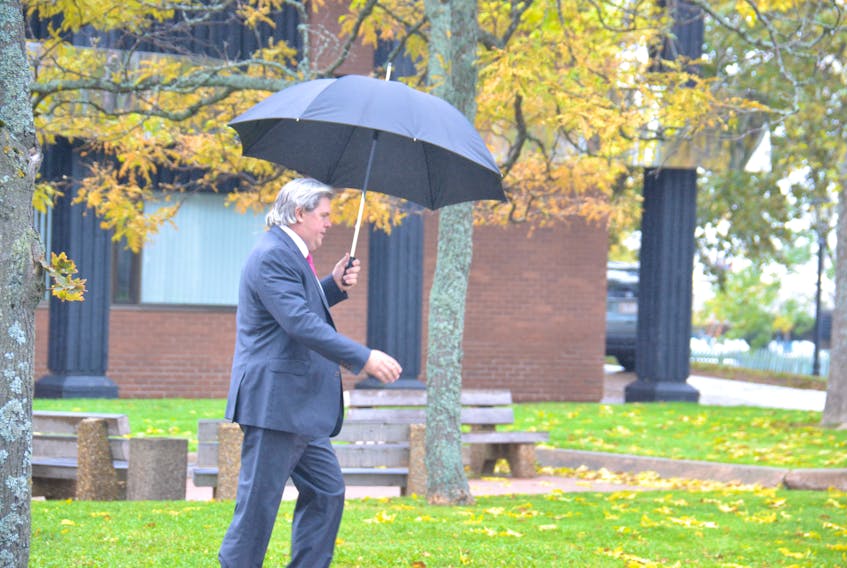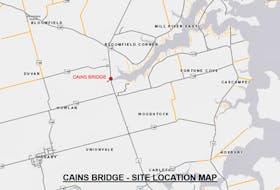CHARLOTTETOWN, P.E.I. - The first hearing in an amended $50-million lawsuit related to P.E.I.’s e-gaming saga opened on Tuesday with a dispute over whether the plaintiff, Capital Markets Technologies Inc. (CMT), would be required to have a $300,000 security repaid.
CMT is suing the government of P.E.I., as well as 14 other defendants, for $50 million in alleged losses related to an e-gaming initiative pursued between 2009 and 2012. Last spring, the P.E.I. Supreme Court allowed the case to proceed with the addition of three defendants – former Innovation P.E.I. lawyer William Dow, former government consultant Tracey Cutcliffe and McInnes Cooper lawyer Gary Scales.
RELATED:
CMT has alleged that both Dow and Cutcliffe breached confidentiality during the negotiation of a memorandum of understanding (MOU) between the company and Innovation P.E.I. in the summer of 2012. CMT had begun the negotiation with Innovation P.E.I. to establish an electronic financial transaction service on the Island for the e-gaming initiative, and later for a tourism loyalty program.
The spring ruling allowed Dow, Cutcliffe and Scales to be included and required that a $300,000 security be paid by CMT against potential costs.
On Tuesday, CMT counsel John McDonald argued the security was imposed in error because it did not consider the strength of the evidence. The evidence filed by CMT includes hundreds of pages of e-mails, memos and briefing notes between government staff and lawyers from various Charlottetown law firms.
McDonald also argued that a 2016 report released by P.E.I.’s Attorney General Jane MacAdam on the e-gaming saga has also presented evidence that supports the CMT’s claims.
The specific claims against Dow, Cutcliffe and Scales rest on the misfeasance of public office.
"Frankly, on the face of this statement of claim, you will never see (misfeasance of public office) alleged. There is no allegation in the statement of claim of intention. There is no allegation that my clients were public officers."
-Gavin Tighe
Gavin Tighe, the lawyer representing Dow, Cutcliffe and Scales argued the evidence presented by CMT failed to prove his clients were public officers, nor that they had committed misfeasance of public office.
He described misfeasance of public office as “the abuse of power by someone in a public, official position, with the intention to injure the plaintiff or with reckless disregard as to whether the plaintiff is injured or not."
"Frankly, on the face of this statement of claim, you will never see that alleged. There is no allegation in the statement of claim of intention. There is no allegation that my clients were public officers," Tighe said.
During his argument, McDonald presented new evidence to the court, including correspondence between legal staff of McInnes Cooper, the law firm retained by the Mi’kmaq Confederacy of P.E.I., and several public officials and government staff.
The evidence included a December 2011 letter signed by Dow approving a trust cheque in the amount of $700,000 to the Mi’kmaq Confederacy of P.E.I.
Dow initially invested $10,000 of personal funds into CMT and later helped negotiate the MOU between the company and Innovation P.E.I. He later stated in a Globe and Mail article that he had not realized CMT and the numbered company with which he was negotiating were one and the same.
The evidence also included a memo penned by McInnes Cooper board chairman Kevin Kiley, which contained two separate budgets submitted by the law firm for services rendered in relation to the e-gaming initiative. The initial budget was for $1,195,000 in expenses, while a second budget was for $950,000.
The memo stated the second budget was submitted in order to “meet the funding thresholds of Innovation P.E.I.” Loans above $1 million must be signed by an executive order and are then made public.
Chief Justice David Jenkins said a decision related to the security costs would be made later in the fall.
Related:
- Plaintiff in e-gaming lawsuit ponies up $300,000 security
- Former P.E.I. premier Robert Ghiz, others added to e-gaming lawsuit
- P.E.I.'s infamous e-gaming lawsuit struck out
- E-gaming lawsuit back in P.E.I. court with motion to add more names
- P.E.I. judge to decide whether Dow, Scales, Cutcliffe should be added to e-gaming suit









